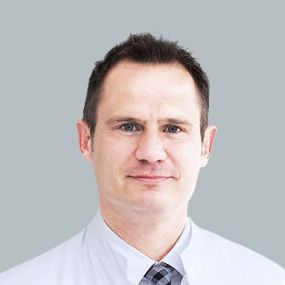Christoph Kleinschnitz studied medicine at the University of Wurzburg (1994 to 2000). Following his doctorate (2001), he worked at the University Neurology Clinic in Wurzburg for several years and qualified as a neurology specialist in 2007. In 2009, he was made the Head of the Stroke Unit and the Out-patients’ Clinic there, where cerebrovascular accidents and disorders of the blood vessels supplying the brain are treated. From 2010, he also led the Clinical Research Group for MS and Neuroimmunology. Before he came to the University Hospital, Essen, he was a Professor and Executive Consultant at the University Hospital, Wurzburg. He has received several prizes for his pioneering work.
Each year, approximately 270,000 people in Germany suffer a cerebrovascular accident and around 2,500 new MS cases are diagnosed each year. In a CVA and in MS, the immune cells (T-helper cells), which should effectively assist the body to recognise pathogens, are impaired. Prof. Kleinschnitz: “If the immune system is misdirected, however, as is the case in MS and CVA, the body attacks itself, even allowing nerve cells to die off, paralysis or even impaired speech.”
Blood platelets (thrombocytes), for example, play a great role: in the healthy body, these help to stop haemorrhage and in the healing of wounds. In a CVA, they form a part of the blood clot and obstruct the blood vessel. The picture is similar for MS. Prof. Kleinschnitz: “Our research, however, also shows that, of course, these conditions are significantly more complex and cannot be explained by the activity of the immune system alone.” Blood clotting factors also play a role in the inflammatory processes within the nervous system. Together with his team at the University Hospital, Essen, he is searching for further similarities and alternative treatment approaches.

